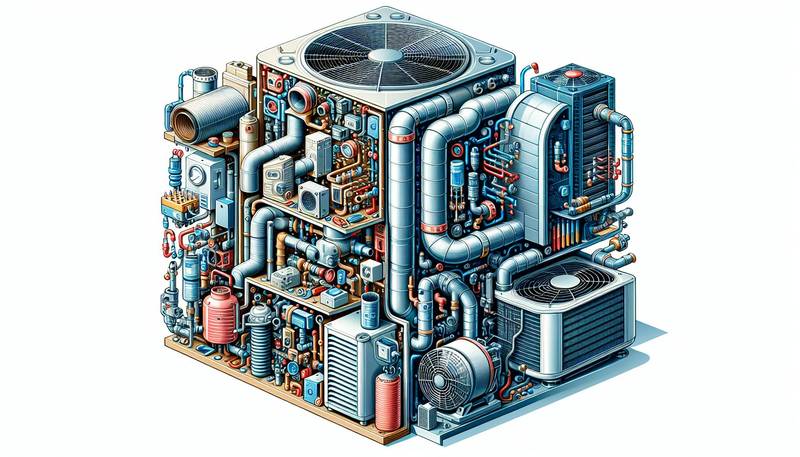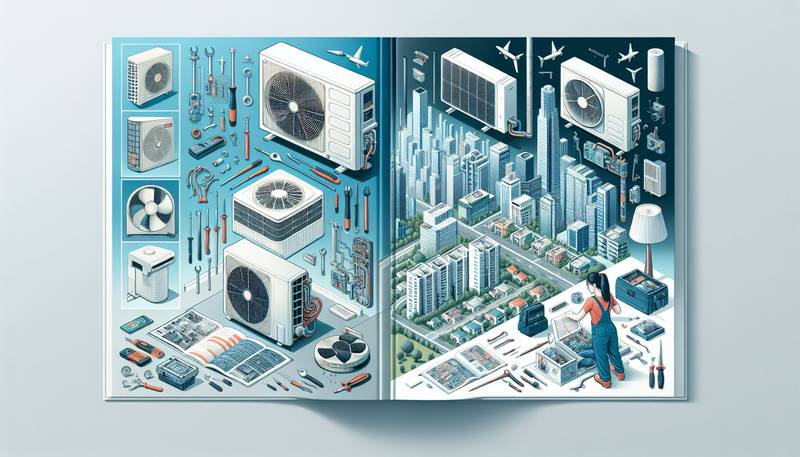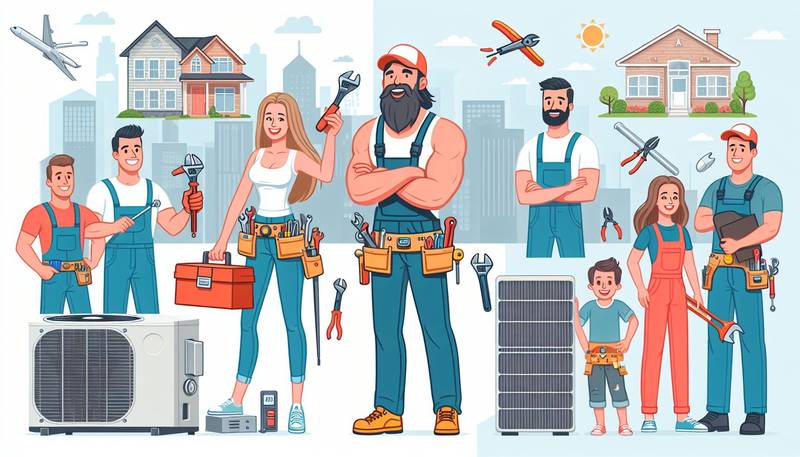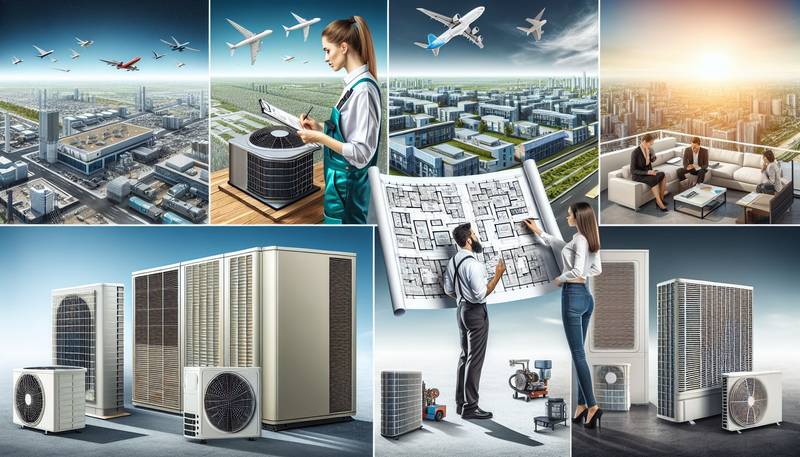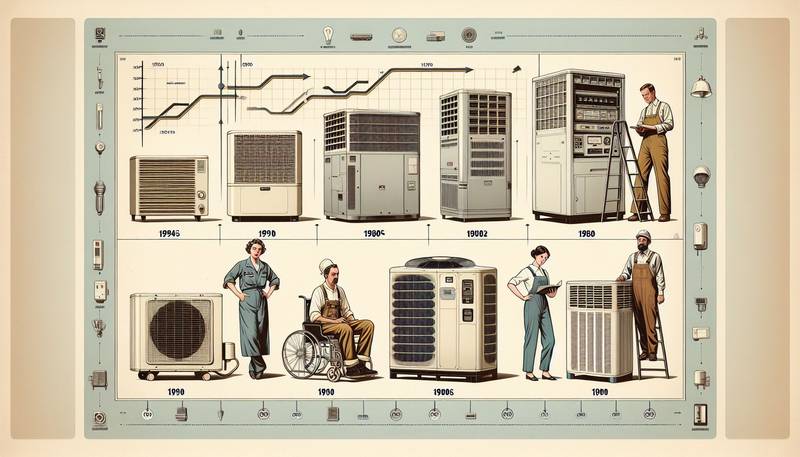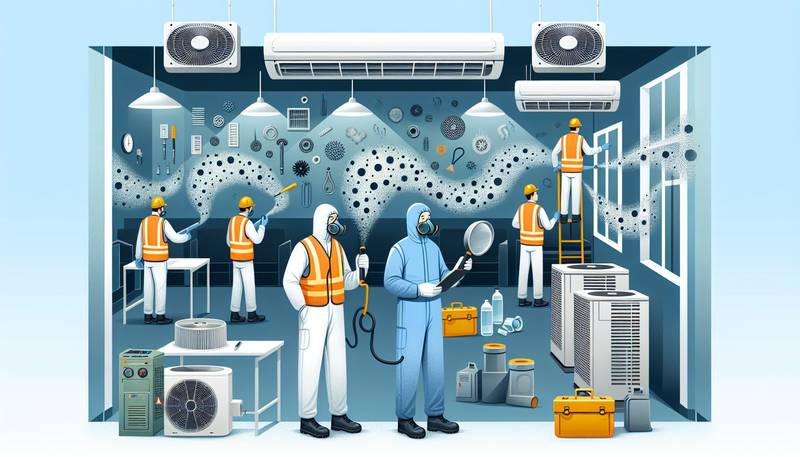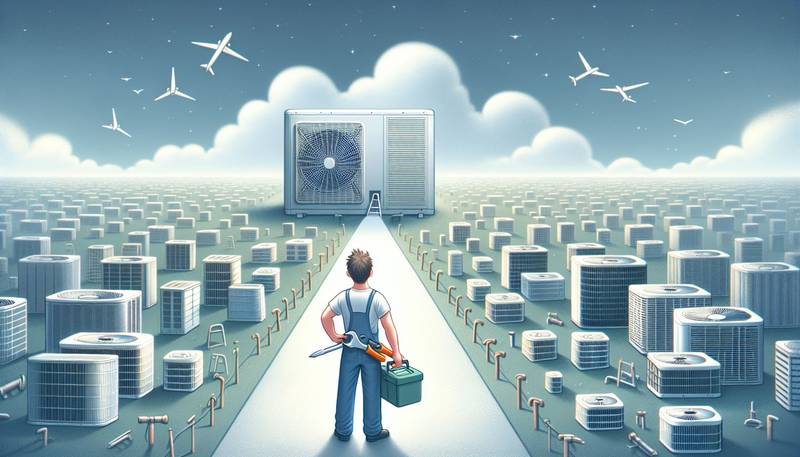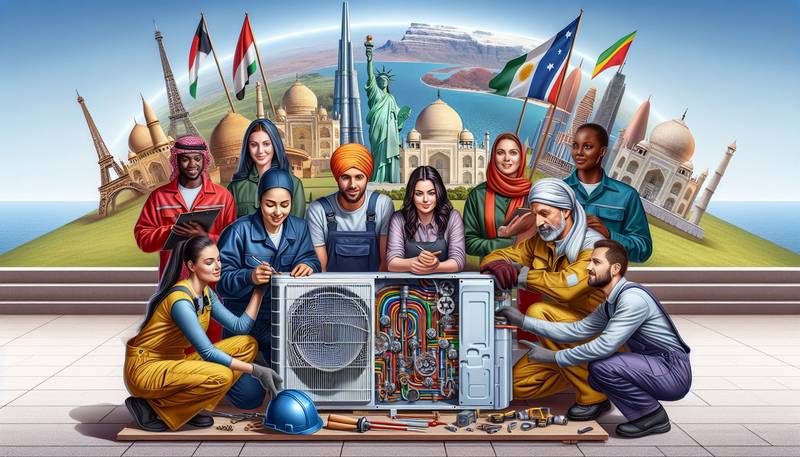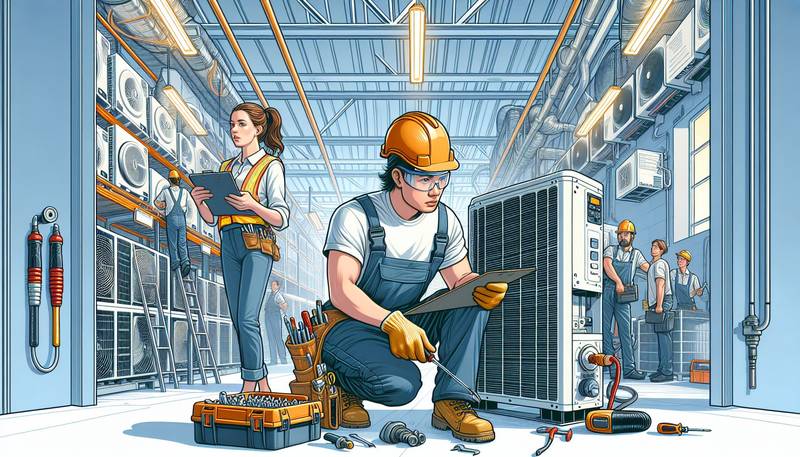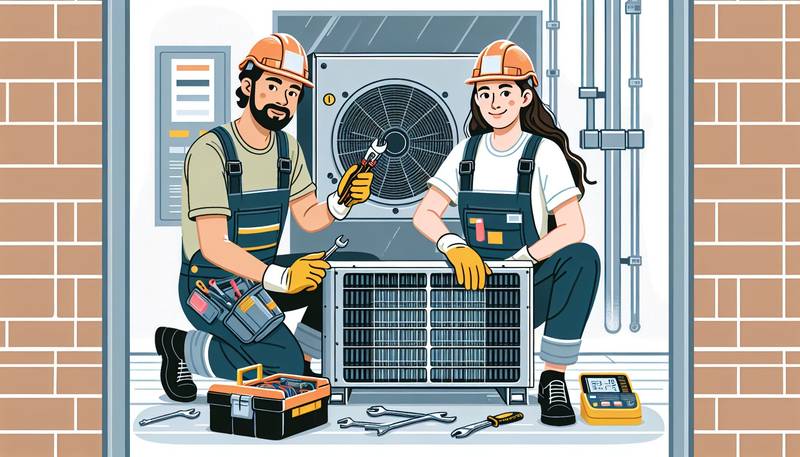The Intersection of HVAC and Air Conditioning Careers
One particular area within the HVAC field that is gaining traction is air conditioning. The intersection of HVAC and air conditioning careers presents exciting opportunities for individuals looking to enter a growing and in-demand industry.
The Role of HVAC Technicians
HVAC technicians play a crucial role in the installation, maintenance, and repair of heating, ventilation, and air conditioning systems. These skilled professionals are responsible for ensuring that indoor environments are kept comfortable and safe for occupants. HVAC technicians work with a variety of equipment, including furnaces, boilers, air conditioners, and ventilation systems. They must have a thorough understanding of how these systems work and be able to troubleshoot and repair any issues that may arise.
The Growing Demand for Air Conditioning Technicians
With the increasing popularity of air conditioning systems in residential and commercial buildings, the demand for air conditioning technicians is also on the rise. Air conditioning technicians specialize in the installation, maintenance, and repair of air conditioning units. They must be knowledgeable about different types of air conditioning systems, such as central air, ductless mini-split systems, and window units. Air conditioning technicians play a vital role in ensuring that indoor environments remain cool and comfortable, especially during the hot summer months.
Training and Education
To pursue a career in HVAC or air conditioning, individuals must typically complete a formal training program or apprenticeship. These programs often include both classroom instruction and hands-on training, allowing students to gain the knowledge and skills needed to succeed in the field. Courses may cover topics such as electrical systems, refrigeration, heating and cooling principles, and troubleshooting techniques. Additionally, some technicians may choose to obtain certification from organizations such as the Environmental Protection Agency (EPA) or the North American Technician Excellence (NATE) program to demonstrate their expertise in the field.
Career Opportunities
HVAC and air conditioning technicians can pursue a variety of career opportunities in the industry. Some may choose to work for HVAC companies, where they can specialize in installation, maintenance, or repair services. Others may decide to start their own businesses and provide HVAC or air conditioning services independently. Additionally, technicians may have the opportunity to work in different settings, such as residential homes, commercial buildings, or industrial facilities. As technology continues to advance, new opportunities may also arise for technicians to work with cutting-edge HVAC and air conditioning systems.
Job Outlook and Salary
According to the Bureau of Labor Statistics, the demand for HVAC technicians is projected to grow 4%!f(MISSING)rom 2019 to 2029, which is about as fast as the average for all occupations. The median annual wage for HVAC technicians was $48,730 in May 2020, with the highest 10%!e(MISSING)arning more than $79,740. As the need for air conditioning services continues to increase, the job outlook for air conditioning technicians is also promising. With the right education, training, and experience, individuals can build successful and rewarding careers in the HVAC and air conditioning industries.
Conclusion
The intersection of HVAC and air conditioning careers offers a wealth of opportunities for individuals looking to enter a growing and in-demand industry. HVAC and air conditioning technicians play a vital role in ensuring that indoor environments remain comfortable and safe for occupants. With the right training and education, individuals can pursue rewarding careers in the field and make a positive impact on the communities they serve. As the demand for HVAC and air conditioning services continues to grow, the need for skilled professionals in the industry will only increase, making it an exciting time to consider a career in this field.
